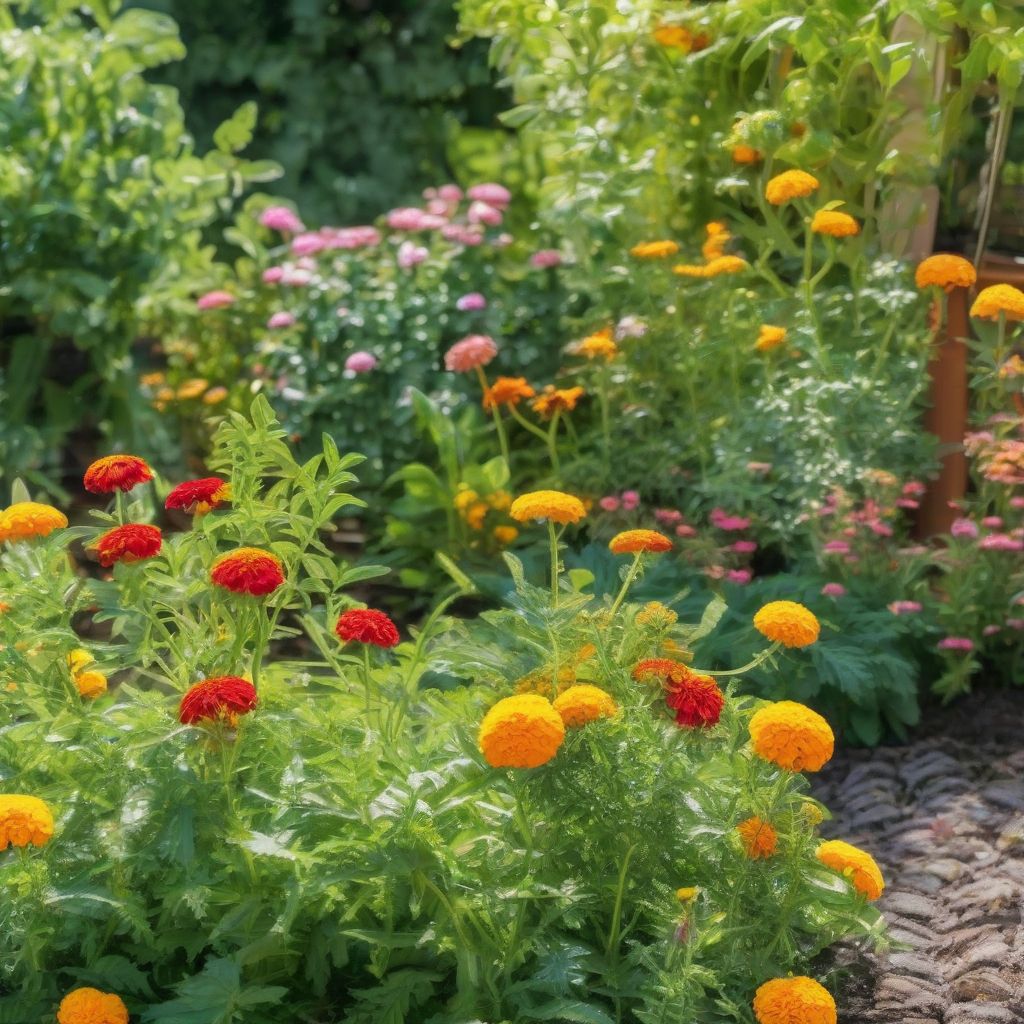Have you ever dreamt of strolling through your garden, plucking sun-ripened tomatoes and crisp cucumbers, only to discover tiny holes nibbled in your precious produce? Pests! The bane of every gardener’s existence. But before you reach for those chemical-laden solutions, let me share a secret: you can have a thriving garden and keep those pesky critters at bay using completely natural pest control methods.
As a nutritionist and meal planning coach, I’m passionate about healthy living, and that includes what we grow in our gardens. Let’s explore how to protect your organic haven and enjoy the fruits (and vegetables!) of your labor, naturally.
Understanding the Organic Approach: Why Natural Pest Control?
Choosing natural pest control isn’t just about avoiding chemicals; it’s about working with nature, not against it. Here’s why it’s a winning strategy:
- Protecting Pollinators: Bees, butterflies, and other beneficial insects are essential for a healthy ecosystem. Harsh chemicals harm these helpful creatures, while natural methods ensure they continue to pollinate your garden and beyond.
- Safer for You and Your Family: Say goodbye to concerns about chemical residues on your food. Natural methods keep your garden a safe haven for everyone, including pets.
- Sustainability: Organic pest control methods are environmentally friendly, protecting our soil, water, and the delicate balance of nature.
Natural Pest Control Arsenal: Your Toolkit for Success
Ready to evict those unwanted garden guests? Let’s explore some powerful, natural pest control methods:
1. Building a Strong Defense: Prevention is Key
Just like a healthy immune system helps us fight off illness, a resilient garden is better equipped to handle pest invasions.
- Choose the Right Plants: Opt for disease-resistant varieties and consider companion planting. Some plants, like marigolds and garlic, naturally deter pests.
- Healthy Soil, Healthy Plants: Rich, well-draining soil leads to strong plants that are less susceptible to pests. Compost and organic fertilizers are your best friends.
- Rotate Crops: Rotating your crops each year disrupts pest life cycles and prevents them from establishing a strong foothold.
2. Calling in the Reinforcements: Beneficial Insects are Your Allies
Invite nature’s tiny warriors to your garden! Beneficial insects, like ladybugs, lacewings, and praying mantises, are voracious predators of common garden pests.
- Attract with Flowers: Plant nectar-rich flowers like yarrow, dill, and cosmos to lure these beneficial insects to your garden and provide them with a habitat.
- Provide Shelter: Insect hotels and bug baths offer shelter and water sources, encouraging beneficial insects to stick around.
3. Natural Repellents: Send Pests Packing
Sometimes, a little nudge is all it takes to send pests on their way. Natural repellents are a safe and effective way to protect your plants:
- Neem Oil: This botanical extract disrupts insect hormones, deterring feeding and reproduction.
- Insecticidal Soap: A simple solution of soap and water can be surprisingly effective against soft-bodied insects like aphids and spider mites.
- Diatomaceous Earth: This naturally occurring powder damages the exoskeletons of insects, causing dehydration.
4. Barriers and Traps: Outsmarting Unwanted Visitors
Sometimes, a little ingenuity is all it takes to outsmart pesky critters:
- Row Covers: Protect vulnerable seedlings from hungry insects with lightweight row covers.
- Copper Tape: Deter slugs and snails with a simple barrier of copper tape around pots or raised beds.
- Traps: Use sticky traps to monitor insect populations and pheromone traps to disrupt mating cycles.
 Natural Pest Control Methods
Natural Pest Control Methods
Patience and Persistence: The Keys to Organic Success
Remember, organic gardening is a journey, not a race. It takes time to create a balanced ecosystem where natural pest control methods can thrive.
- Observe and Identify: Before taking action, carefully observe your garden and identify the pests that are causing problems.
- Start Small: Don’t feel overwhelmed. Implement one or two new methods at a time and see what works best in your garden.
- Embrace Imperfection: A few holes in your lettuce leaves are okay! It’s all part of the natural cycle.
Cultivating a Thriving Garden, Naturally
Growing your own food is incredibly rewarding, and with the power of natural pest control, you can enjoy a bountiful harvest while protecting the environment and your health. Remember, a thriving garden is a testament to your dedication and a gift to yourself and the planet.
Now, I’d love to hear from you! What natural pest control methods have you tried in your garden? Share your tips and experiences in the comments below.
[amazon bestseller=”organic pest control”]
For more tips on creating a healthy and productive organic garden, check out these articles:
